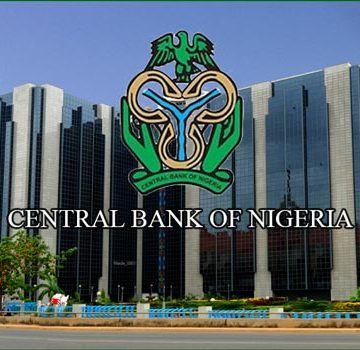Investment is to a country, what food is to the existence of any man. To develop any country’s economy, there must be an existing or well-grounded investment plan by the leadership of such country.
Investment influences the rate of economic growth because it is a component of aggregate demand and more importantly it influences the productive capacity of the economy. An increase in investments in any country, boosts the economic growth of such a country.
Actually, the importance of investment in increasing economic growth of a Nation cannot be over-flogged.
Investment means expenditure on capital spending, e.g. buying new machines, building bigger factories, buying robots to enable automation. In economics, investment does not mean saving money in a bank.
Investment is a component of aggregate demand (AD). Therefore, if there is an increase in investment, it will help to boost AD and short-run economic growth.
A writer once opined that the qualitative direction of investment decides the economic destiny of any political entity. Today, this quantitative question is about the financial strategy to build an information technology infrastructure in a country, since all production factors have become knowledge-intense (information-based). If there is spare capacity, then increased investment and a rise in AD will increase the rate of economic growth.
For this reason, a leadership who means well for the State he governs, would make extra efforts to promote the state he governs and make it an investment hub, where investors would take special interest.
In Nigeria, the Nigerian Investment Promotion Commission is a federal government agency established in 1995 to promote, co-ordinate and monitor all investments in Nigeria. Its functions are clearly stated in the Nigerian Investment Promotion Act Chapter N117 laws of the federation of Nigeria 2004.
With a staff strength of about 251-500, NIPC has been saddled with the sole responsibility of developing the Nation’s Budget and economy through strategic promotions and monitoring of Investments in the Nation.
For the convenience of space, I would henceforth refer to the Commission as NIPC. Its basic functions and powers prescribed by Act 16 of 1995 allows it to Co-ordinate, monitor, encourage and provide necessary assistance and guidance for the establishment and operation of enterprises in Nigeria.
The Commission has perpetual succession and a common seal, which is specially established, among other things, to initiate and support measures which enhance the investment climate in Nigeria for both Nigerian and non-Nigerian investors.
According to a leading tabloid’s survey, it has been revealed that more than 10 states across the country cannot boast of a functional investment promotion agency.
Specifically, the latest survey conducted by the Nigerian Investment Promotion Commission [NIPC] revealed that 26 states, representing 72 per cent, have a functional IPA each with a mandate to promote investments; six states, representing 17 per cent, have the function situated within a ministry while four other states (11 per cent) have it in government.
Indeed, if every state in the country can have a replica of the NIPC and make them functional, it would afford NIPC a scientific base that could be used to enhance working relationships with compliant states and provide the necessary support. In reality, and according to NIPC’s records, existing structured state investment promotion agencies are not up to 26.
NIPC under the leadership of its CEO, Ms Yewande Sadiku has pledged to continue to encourage the state governments to set up these agencies backed by legal instruments.
If states’ investment promotion agencies can leverage on NIPC’s rich database and reform programmes to improve their efficiency and effectiveness in investment promotion drive, it would enhance their economy and by extension, the country’s economy.
According to information made available by the Commission, it promotes investments in and outside Nigeria through effective promotional means; Collect, collate, analyse and disseminate information about investment opportunities and sources of investment capital and advise on request, the availability, chance or suitability of partners in joint-venture projects; Register and keep records of all enterprises to which the NIPC Act legislation applies;
Identify specific projects and invite interested investors for participation in those projects;
Initiate, organise and participate in promotional activities such as exhibitions, conferences and seminars for the stimulation of investments; Maintain liaison between investors and Ministries, government departments and agencies, institutional lenders and other authorities concerned with investments; Provide and disseminate up-to-date information on incentives available to investors; Assist incoming and existing investors by providing support services;
Evaluate the impact of the Commission on investment in Nigeria and recommend appropriate remedies and additional incentives; Advise the Federal Government on policy matters, including fiscal measures designed to promote the industrialisation of Nigeria or the general development of the economy; and Perform such other functions as are supplementary or incidental to the attainment of the objectives of NIPC Act. FUNCTIONS: Develop detailed strategies and work plan for the Commission, and monitor the performance of the plans to ensure a vibrant and proactive culture of excellence in service delivery that enhances the Commission’s effectiveness in investment promotion and facilitation.
Develop long-range (strategic) plans that will properly position the Commission’s present and future state Coordinates with the National Planning Commission, and other relevant agencies (MDAs), to make sure that the Commission’s plans are in line with government’s thrust and objectives, among other functions.
The Commission has enhanced the finances of the Nation, while it has also sustained the Nation’s urban planning, infrastructural development and agricultural technology of the country.
Under the Executive Secretary/ CEO, Ms. Yewande Sadiku’s managerial and international experience the Commission has spread its tentacles of influence to potential investors across the borders of Nigeria.
The NIPC Executive Secretary, Ms. Yewande Sadiku, has therefore admonished state governments to set up functional investment promotion agencies to attract local and foreign direct investment.
According to her, the survey also revealed that the sectors that have the highest investment attraction in the states are agriculture, manufacturing, education, solid minerals development as well as real estate.
The NIPC Director in Charge of Investment Promotion, Mr Adesina Emmanuel, said that the commission had put in place an investor-tracking mechanism to follow up with announcements with a view to translating them into actual investments.
“The department, working with Stratcom, is developing an investor- tracking sheet which it intends to use for the purpose of following up to know how the commission may help in actualizing investments plans’’.
NIPC had similarly designed a standard web-based template for profiling investment opportunities and managing the collected information with an intelligent and modern database.
The template allows the collection of information on the key features of any investment prospect and the economic impact of the actualization of such plans.
Olamide Adeniji is a member of TheScript Editorial Board.




